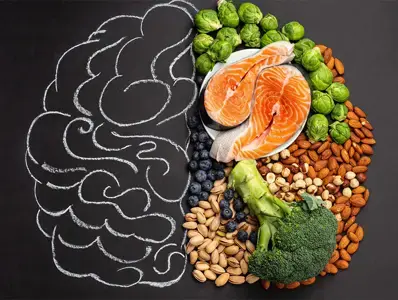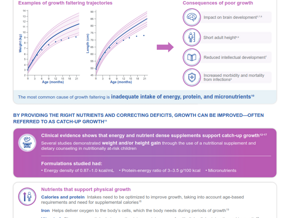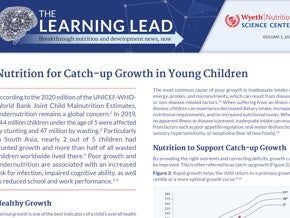
[Science Update] The impact of nutritional interventions on preschoolers' cognitive development
Single nutrient supplementation
- Interventions such as vitamin B sachets, iodized salt, and guava supplements had no significant effect on cognition outcomes
- Iron supplementation was able to increase accuracy and the speed of discrimination on the continuous performance task for children with iron deficiency anemia
- Iron supplementation had no effect on continuous processing task performance in children with adequate iron status at baseline
- There was no significant difference in cognitive function scores between DHA intervention group and placebo group
- However, higher serum DHA levels were shown to be significantly associated with higher scores on the Peabody Picture Vocabulary Test (measuring listening comprehension and vocabulary)
- However, higher serum DHA levels were shown to be significantly associated with higher scores on the Peabody Picture Vocabulary Test (measuring listening comprehension and vocabulary)
Multiple-micronutrient supplementation
- Multiple micronutrient powder (added to maize-meal porridge) was able to increase children’s scores (aged 36 – 79 months) on the simultaneous scale and the non-verbal index of the Kaufman Assessment Battery for Children when compared to control
- Micronutrient powder fortification was able to improve expressive language skills of children attending low-quality preschools, as well as inhibitory control and social-emotional development but to a lesser degree
- Micronutrient powder fortification showed no improvement in cognitive outcomes of children attending high-quality preschools
- Consuming a unique supplementary food containing multiple micronutrients, plant polyphenols, omega-3 fatty acids and protein was shown to increase working memory of children (< 4 years) significantly when compared to control
- No improvement in working memory were found in 4 – 7-year-old children who received the same intervention
- No improvement in working memory were found in 4 – 7-year-old children who received the same intervention
Food-based interventions (Provision of meals containing fatty fish)
- Children aged 4 – 6 years old consuming Atlantic salmon 3 times a week had modest improvements in 2 indicators of non-verbal fluid intelligence, which were greater than that of the control group who consumed beef instead
- Children aged 4 – 6 years old consuming herring and mackerel had increased total raw scores on the Wechsler Pre-school and Primary Scale of Intelligence (WPPSI-III)
- 3 sub-tests with improved performance: the symbol search test, the vocabulary test and block design sub-test
- The FINS-KIDS trial demonstrated that the hair mercury level increased by the herring/mackerel intervention remained below a level of concern, which were not associated with cognitive function
Nutritional intervention combined with psychosocial stimulation
- Children aged 3 – 5 years (with below average level of stimulation at home) receiving a fortified milk powder and performing psychosocial stimulation activities 3 times a week showed a greater increase in the full-scale IQ composite score component of the WPPSI-IV, when compared to the control group
*Standardized cognitive tests included: learning abilities, verbal reasoning, intellectual functioning, information processing speed, vocabulary, word reasoning, speed and accuracy of discrimination, fine and gross motor skills, coding, symbol search, and working memory.
Link to the full article:
https://www.ncbi.nlm.nih.gov/pmc/articles/PMC8839299/pdf/nutrients-14-00532.pdf
Reference:
Roberts M et al. The effects of nutritional interventions on the cognitive development of preschool-age children: A systematic review. Nutrients. 2022;14(3):532.
Other articles that you might be interested in:
[Video] The role of polar lipids in brain and cognitive development - Dr. Pascal Steiner
WYE-EM-076-JUN-22
If you liked this post you may also like



